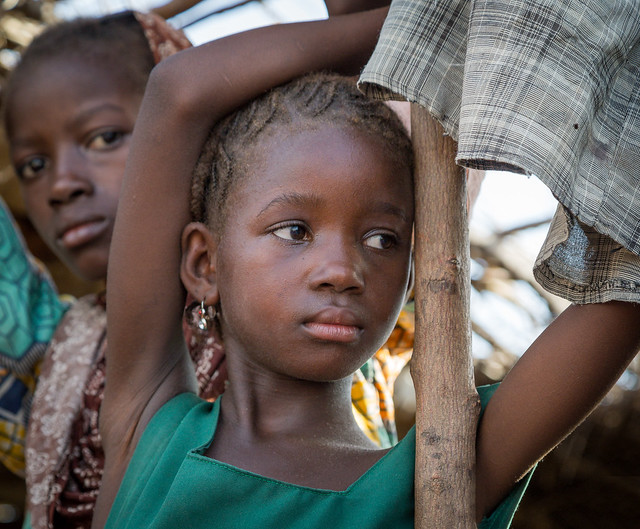In Nigeria, early marriage is a common practice, often driven by economic or social pressures. However, this practice has severe implications for the health and well-being of young brides, particularly regarding their nutritional status. Nutritional deficiencies in young Nigerian brides represent a hidden crisis with long-term consequences for their health and future generations.
The Vulnerability of Young Nigerian Brides
Young brides, often still in their teenage years, face unique nutritional challenges such as :
- Increased Nutritional Needs: Adolescence is a critical period of growth and development, requiring increased intake of essential nutrients. When these young girls become pregnant, their nutritional needs escalate further to support both their own development and that of their unborn child.
- Limited Access to Nutrition: In many cases, young brides have limited access to nutritious foods. Socioeconomic constraints, cultural practices, and lack of education about proper nutrition contribute to their dietary inadequacies.
- Health Complications: Early pregnancy and childbirth compound the risk of nutritional deficiencies, leading to complications such as anemia, stunted growth, and weakened immunity.
What are the Key Nutritional Deficiencies in Young Brides?
Several critical nutrients are commonly deficient in young Nigerian brides, with significant health implications:
- Iron: Iron deficiency anemia is prevalent among young brides, exacerbated by menstrual blood loss and the increased iron demands of pregnancy. Symptoms include fatigue, weakness, and impaired cognitive function, which can affect their ability to care for themselves and their families.
- Folate: Folate is essential for DNA synthesis and cell division. Deficiency can lead to neural tube defects in the developing fetus and increase the risk of preterm birth and low birth weight.
- Calcium: Adequate calcium intake is crucial for bone health. Young brides often have insufficient calcium intake, increasing the risk of osteoporosis later in life and complicating pregnancy and childbirth.
- Vitamin D: Vitamin D deficiency is linked to impaired bone health and immune function. Limited sun exposure, combined with inadequate dietary intake, can lead to severe deficiencies.
- Protein: Protein is vital for growth, muscle mass, and overall health. Inadequate protein intake can hinder the physical development of young brides and negatively affect pregnancy outcomes.
What are the Biochemical Impact of Nutritional Deficiencies?
Nutritional deficiencies disrupt various biochemical processes essential for health and development:
- Metabolic Dysregulation: Deficiencies in vitamins and minerals can impair metabolic pathways, leading to energy imbalances, weight loss, and muscle wasting.
- Immune Function: Malnutrition weakens the immune system, making young brides more susceptible to infections and illnesses.
- Reproductive Health: Nutritional deficiencies can affect menstrual cycles, fertility, and pregnancy outcomes, leading to complications such as preeclampsia and gestational diabetes.
How can we as a Community Address Nutritional Deficiencies?
Addressing nutritional deficiencies in young Nigerian brides requires a multifaceted approach:
- Education and Awareness: Educating communities about the importance of nutrition, particularly for young brides, is crucial. Programs that promote understanding of balanced diets and the nutritional needs of pregnant and breastfeeding women can make a significant difference.
- Nutritional Support Programs: Implementing programs that provide access to nutrient-rich foods, supplements, and fortified foods can help bridge the nutritional gap. School feeding programs, community kitchens, and food aid initiatives are effective strategies.
- Healthcare Access: Ensuring young brides have access to healthcare services, including prenatal and postnatal care, is vital. Regular health check-ups can identify and address nutritional deficiencies early.
- Empowerment and Economic Support: Empowering young brides with education and economic opportunities can improve their ability to secure nutritious foods and make informed dietary choices.
The Nigerian Context
In Nigeria, cultural practices and economic challenges significantly impact the nutritional status of young brides:
- Cultural Practices: Traditional dietary restrictions and food taboos can limit the intake of essential nutrients. Addressing these cultural barriers through community engagement and education is essential.
- Economic Constraints: Poverty is a significant barrier to adequate nutrition. Initiatives that improve economic stability, such as microfinance programs and vocational training, can enhance the ability of young brides to access nutritious foods.
Conclusion
Nutritional deficiencies in young Nigerian brides are a hidden crisis with far-reaching consequences. Addressing this issue requires a comprehensive approach that includes education, nutritional support, and healthcare access. By prioritizing the nutritional health of young brides, we can improve their well-being and contribute to healthier future generations. This effort is not just about food but about empowering young women to lead healthier, more fulfilling lives.
- Exploring the Neuroimaging of Infertility-Related Stress: A Nigerian Perspective - May 1, 2023
- The Silent Battle: Investigating the Biochemical Effects of Chronic Stress in Nigerian Women Facing Gender-Based Violence - March 22, 2023
- The Biochemical Effects of Estrogen Therapy in Transgender Women - March 7, 2023


